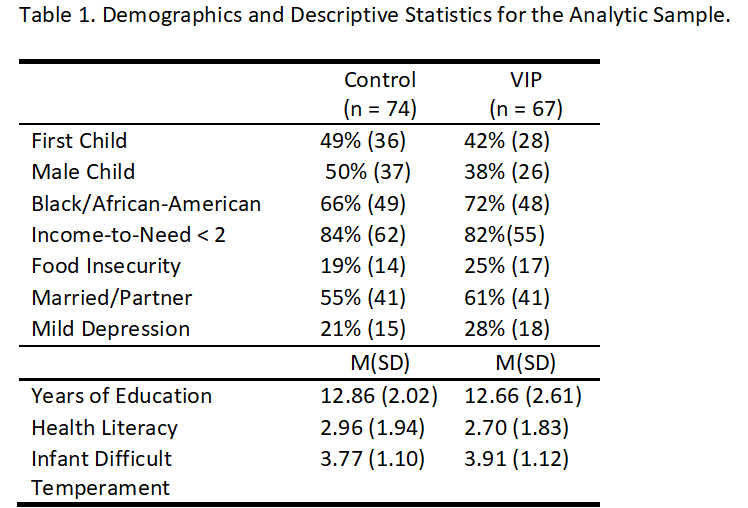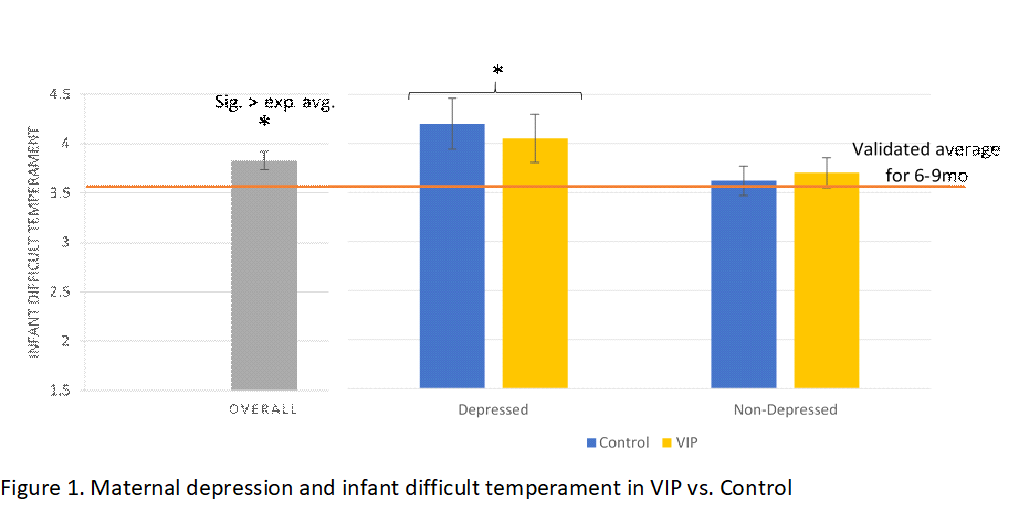Mental Health
Mental Health 1
585 - Primary Care Parenting Support, Maternal Depression and Infant Difficult Temperament in the Context of Community-Level Trauma in Flint, MI
Publication Number: 585.126

Caitlin F. Canfield, PhD (she/her/hers)
Assistant Professor
Hassenfeld Children's Hospital at NYU Langone
New York, New York, United States
Presenting Author(s)
Background:
Multiple studies have indicated that increased maternal depression significantly predicts maternal perceptions of more infant difficult temperament (IDT), which has long-term implications for children’s behavior and mental health. Mothers who experience trauma prior to or during pregnancy, such as women who lived in Flint, MI during the Flint Water Crisis, are more likely to report depressive symptoms and rate their infants as more difficult. Interventions aimed at supporting relational health, such as the Video Interaction Project (VIP), may moderate the relation between maternal depression and infant temperament by promoting parent-child interaction and guiding parent expectations.
Objective:
The objective of this study was to examine whether the relation between maternal depression and perceived infant difficult temperament varied between VIP and Control families in Flint, MI.
Design/Methods:
Maternal-infant dyads < 6m were recruited into a randomized controlled trial of VIP (Table 1). The analytic sample includes 130 dyads who completed both baseline and 9m assessments. Primary predictor: maternal depression (PROMIS). Primary Outcome: infant difficult temperament (Infant Behavior Questionnaire; IBQ). Analysis: T-test to examine relation to validated mean; regression to determine the effect of maternal depression on IDT, controlling for potential confounders; subgroup analyses examining differences between VIP and Control groups.
Results:
Overall, IDT in the current sample was higher than the validated IBQ average of 3.56 (0.87), t = 2.92, p < .01. Subgroup analysis indicated this was only true among infants of depressed mothers, t = 2.87, p < .01 vs. t = -1.39, p = .17. Further, depression was associated with increased reported IDT in the Control group when controlling for covariates including child gender, birth order, maternal education, and social support, β = .25, p < .05, but not in the VIP group.
Conclusion(s):
Findings extend previous research on the link between maternal depression and IDT by indicating that programs aimed at increasing early relational health may buffer infants from the impacts of maternal depression. Although mothers who met criteria for mild depression rated their infants as more difficult, VIP mitigated that association, such that maternal depression was significantly related to IDT only in the Control group. These results have important implications for clinicians, as they indicate that supporting early relational health within pediatric care may be an effective way to reduce the intergenerational transmission of risk in the context of maternal depression.

